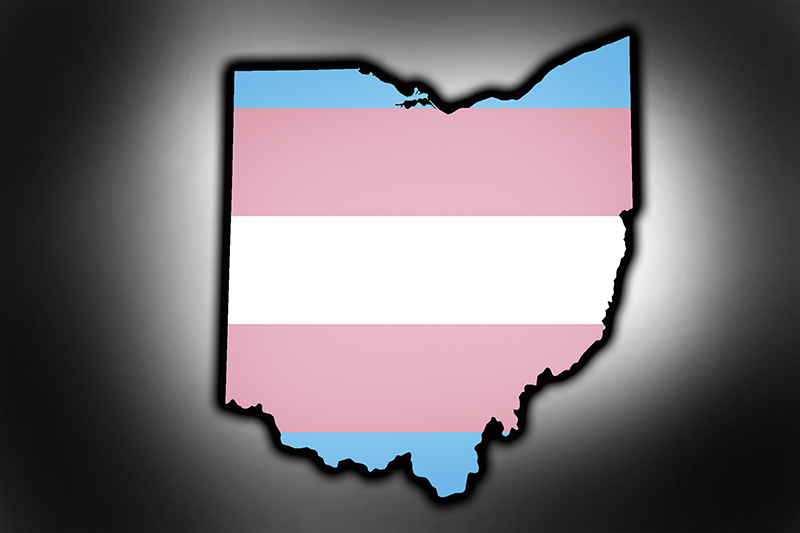Florida Poised to Ban Gender-Affirming Treatments for Minors
Florida health officials are poised to pass a rule prohibiting transgender youth from accessing gender-affirming interventions.

On Oct. 28, members of Florida’s medical boards voted to preliminarily approve rule banning gender-affirming health care treatments for minors suffering from gender dysphoria.
A joint committee of the Florida Board of Medicine and state Board of Osteopathic Medicine voted to begin drafting the rule after hours of public and expert testimony. Both boards are scheduled to meet on Friday, Nov. 4 to finalize the rule, which would prohibit doctors from prescribing puberty blockers, hormones, or surgical interventions to transgender-identifying minors, reports The Hill.
The members of both boards, who were appointed by Republican Gov. Ron DeSantis, a vocal critic of doctors who prescribe gender-affirming treatments, first met to discuss the issue in August, days after the Florida Department of Health filed a petition requesting that the boards establish a new standard of care for minor transgender patients.
In its petition, the department claimed there was a lack of “quality evidence” to justify prescribing puberty blockers and hormones to people with gender dysphoria, and questioning their safety and the long-term effects of such treatments. It recommended that the boards classify such treatments as “experimental” and recommended that patients be “fully informed consent of the risks and limitations” of such treatments.
Additionally, the petition states, children younger than 18 years old do not possess the “cognitive or emotional maturity” to comprehend the consequences of receiving gender-affirming medical care.
The health department, following the lead of Florida Surgeon General Joseph Ladapo, a DeSantis appointee, previously issued guidance in April suggesting that gender-affirming health care should not be accessible to minors and accused the federal government of “injecting political ideology into the health of our children” when it published a fact sheet earlier this year that was supportive of gender-affirming interventions.
In fact, as part of its state opposition to gender-affirming care, the department even recommended that social transition — a reversible process involving no medical interventions in which a person begins living according to their gender identity — often by changing their name or pronouns or wearing clothing or hairstyles that don’t match their assigned sex at birth — be discouraged for minors.
According to Scientific American, data from more than a dozen studies of more than 30,000 transgender and gender-nonconforming young people consistently show that access to gender-affirming care is associated with better mental health outcomes and lower incidences of suicide, depression, or self-harming behaviors.
Additionally, most major medical organizations, including but not limited to the American Academy of Pediatrics, the American Academy of Child and Adolescent Psychiatry, the Endocrine Society, and the American Psychological Association, have found that gender-affirming care for some suffering from gender dysphoria is both evidence-based and medically necessary — although they recommend a slow, deliberative process, including waiting until someone begins experiencing puberty to prescribe puberty blockers, and discouraging surgical interventions until adulthood.
But critics of gender-affirming care, including Patrick Hunter, a member of the state’s Board of Medicine, have claimed that the studies aren’t conclusive and haven’t provided enough solid evidence demonstrating that gender-affirming interventions are effective or can be safely administered without long-term detrimental health effects.
“Those studies don’t exist,” Hunter said during the Oct. 28 meeting, according to Politico. “We don’t have high quality evidence based on that.”
While bills have been introduced in 25 different states seeking to bar gender-affirming care for minors, and bans on specific treatments for transgender youth have been approved through the legislative process in Arkansas, Alabama, and Arizona, Florida has moved aggressively to restrict all forms of gender-affirming care.
In June, the Florida Agency for Health Care Administration, which oversees the state’s Medicaid program proposed a rule to prohibit Medicaid from covering the costs affiliated with all transition-related procedures, even for adults, which ultimately was approved two months later — despite concerns that the rule might violate nondiscrimination provisions in the Affordable Care Act.
Also in June, the AHCA released its own report on gender-affirming medical care, making assertions and offering recommendations that critics say are based on flawed science and politically motivated.
The debate over gender-affirming care has become a controversial issue and has been exploited, particularly by Republican politicians, in the run-up to this year’s midterm elections. Radio and TV ads denouncing gender-affirming care have been airing in multiple states, and thousands of mailers, in both English and Spanish, have been sent to voters in those states, seeking to exploit latent anti-trans animus and marshal opponents to vote against Democrats in November.
Republicans also appear to have no intention of dropping the issue, even should they win control of Congress, as expected, after they are sworn into office in January. U.S. Rep. Marjorie Taylor Greene, joined by nearly 30 other co-sponsors, has introduced the “Protect Children’s Innocence Act,” which would criminalize doctors and charge them with a felony for prescribing treatments that would assist them in transitioning.
Support Metro Weekly’s Journalism
These are challenging times for news organizations. And yet it’s crucial we stay active and provide vital resources and information to both our local readers and the world. So won’t you please take a moment and consider supporting Metro Weekly with a membership? For as little as $5 a month, you can help ensure Metro Weekly magazine and MetroWeekly.com remain free, viable resources as we provide the best, most diverse, culturally-resonant LGBTQ coverage in both the D.C. region and around the world. Memberships come with exclusive perks and discounts, your own personal digital delivery of each week’s magazine (and an archive), access to our Member's Lounge when it launches this fall, and exclusive members-only items like Metro Weekly Membership Mugs and Tote Bags! Check out all our membership levels here and please join us today!

























You must be logged in to post a comment.